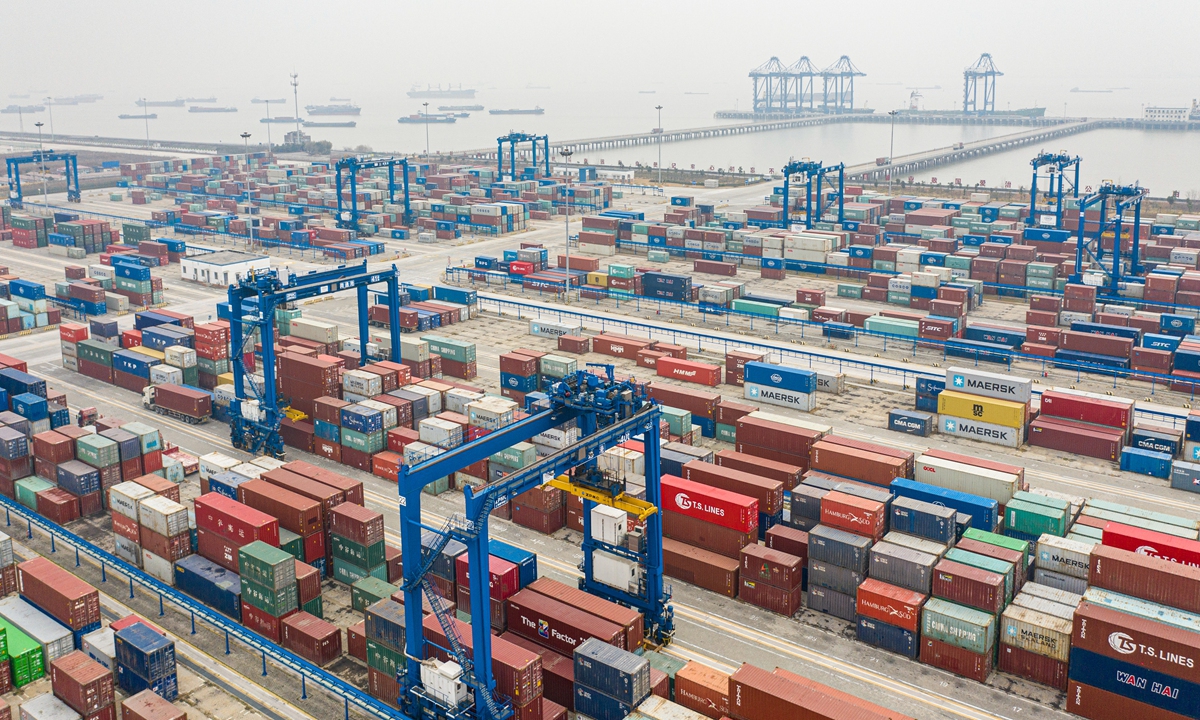
File photo: cnsphoto
German Economy Minister Robert Habeck said on Tuesday that the country is changing the way it deals with China and will place higher priority on human rights issues. Habeck said German is reducing its dependency on China, and will conduct closer examination on German companies' applications to invest in China to rule out "human rights violations" and "forced labor" in the supply chain, according to Reuters.
Habeck's remarks came as Western media outlets and politicians are busy cooperating with each other to stage a political farce over Xinjiang. After the BBC on Tuesday released so-called new evidence of "reeducation centers" in Xinjiang, the US State Department stated the US was "appalled" by the latest allegations and UK foreign secretary claimed the new evidence contained "shocking" details.
In response to the BBC report, Chinese Foreign Ministry spokesperson Wang Wenbin said that it is the latest example of the anti-China forces' smearing of Xinjiang. The lies and rumors cannot deceive the world. The latest publicity stunts put on by US and UK politicians and media outlets are apparently intended to use the China visit of the UN High Commissioner for Human Rights to whip up the so-called Xinjiang issue and discredit China.
As an economic official within the German government, Habeck should not hurry to be involved with the US-led smearing campaign against Xinjiang. His remarks on the groundless accusation of "human rights violations" and "forced labor" have politicized economic and trade issues, bringing unnecessary risks on Germany's economic and trade ties with China.
China and Germany have enjoyed stable and complementary economic relationships for a long time. According to data from Federal Statistical Office of Germany (Destatis), goods trade between Germany and China in 2021 reached 245.7 billion euros ($262.7 billion). China was Germany's most important trading partner for six consecutive years. To reduce its economic and trade dependence on China only because of the human rights lies fabricated by the US, this is obviously not a wise choice for Germany.
The stable development of China-Germany economic and trade in recent years is partly due to the complementarity of each other's economy, but more importantly, the two countries cherish and respect each other's diplomatic relations. This year marks the 50th anniversary of the establishment of diplomatic relations between China and Germany. Germany should not follow the despicable behavior of the US and its anti-China pawns in weaponizing human rights issues.
Facts have proved again and again that the real purpose of the US fabricating "forced labor" lies is to undermine the economic development momentum and stability and prosperity of Xinjiang region so as to contain China. If Germany allows itself to be involved in this anti-China political farce, only China-Germany relations and economic and trade cooperation will be damaged. Germany should not cooperate with the US anti-China strategy at the expense of its own economic interests.
The economic and trade cooperation between China and Germany still enjoys broad prospects. The two sides not only have close cooperation in traditional manufacturing, but also have huge cooperation potential in emerging fields such as digital economy and green economy. The Chinese market will provide broad space for German products and services. The high-quality development and upgrading of China's manufacturing industry will also continue to bring opportunities for German companies. Strengthening cooperation between China and Germany is of great significance to the stabilization of the global industrial chain and global economic growth.
Decoupling and chain breakage does no good to all. China and Germany should enhance strategic communication to inject more stability and positive energy into the world, Chinese State Councilor and Foreign Minister Wang Yi noted in a video meeting with his German counterpart Annalena Baerbock on Tuesday. It's hoped that Germany can cherish the mutual beneficial economic ties with China and stop politicizing of economic issues to attack China.
The author is an editor with the Global Times. bizopinion@globaltimes.com.cn




